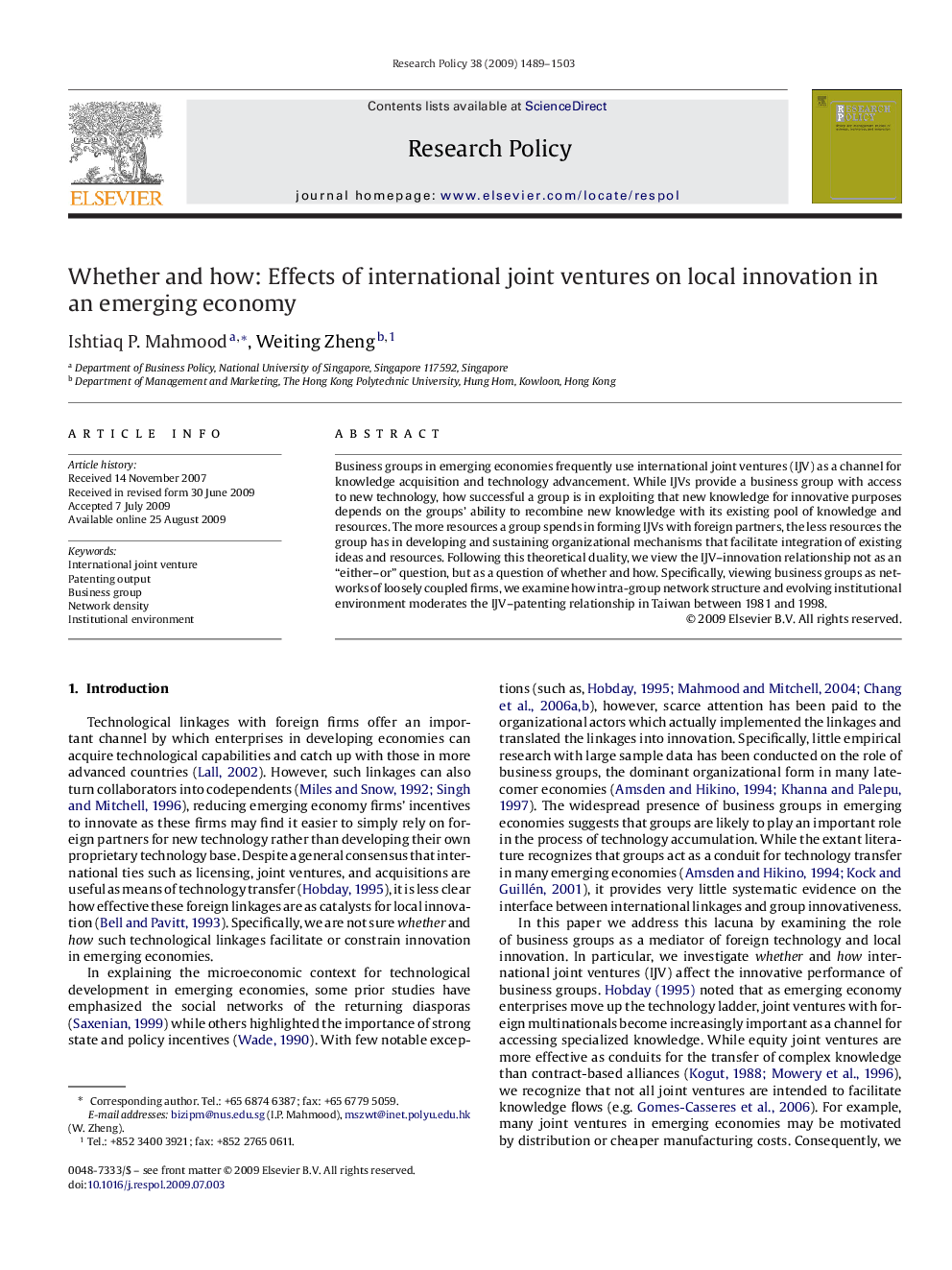| Article ID | Journal | Published Year | Pages | File Type |
|---|---|---|---|---|
| 984612 | Research Policy | 2009 | 15 Pages |
Business groups in emerging economies frequently use international joint ventures (IJV) as a channel for knowledge acquisition and technology advancement. While IJVs provide a business group with access to new technology, how successful a group is in exploiting that new knowledge for innovative purposes depends on the groups’ ability to recombine new knowledge with its existing pool of knowledge and resources. The more resources a group spends in forming IJVs with foreign partners, the less resources the group has in developing and sustaining organizational mechanisms that facilitate integration of existing ideas and resources. Following this theoretical duality, we view the IJV–innovation relationship not as an “either–or” question, but as a question of whether and how. Specifically, viewing business groups as networks of loosely coupled firms, we examine how intra-group network structure and evolving institutional environment moderates the IJV–patenting relationship in Taiwan between 1981 and 1998.
